Tories' first Corbyn attack advert - and other memorable political posters
The Week looks back at some of the best and worst examples of campaign propaganda
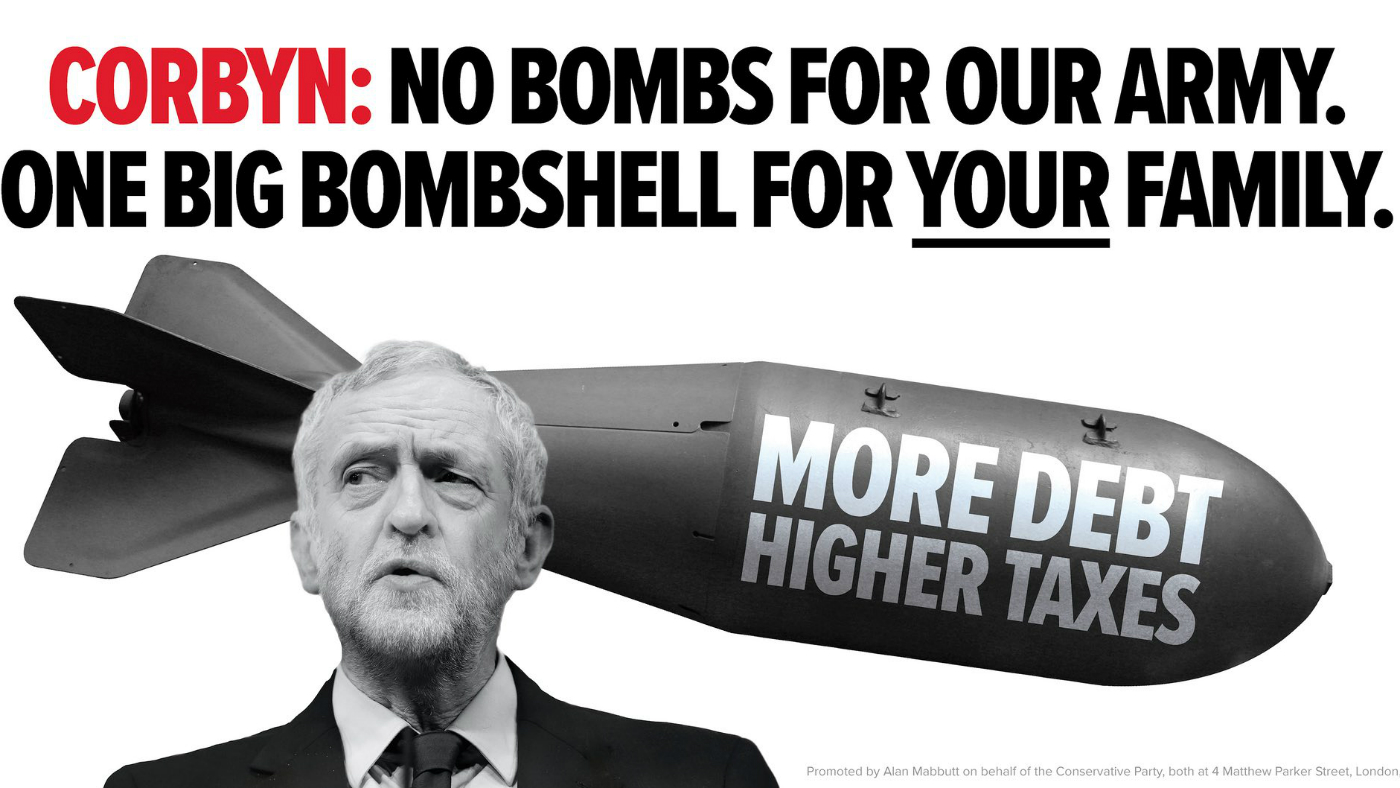
A free daily email with the biggest news stories of the day – and the best features from TheWeek.com
You are now subscribed
Your newsletter sign-up was successful
The first attack ad of this year's general election has been released, with the Tories placing a picture of Jeremy Corbyn over an image of a bomb alongside the slogan: "No bombs for our army, one big bombshell for your family."
Although the focus of the advert's words is economic, "the bomb is likely to have been included as a way of reminding people of Corbyn's pacifist views", says The Guardian.
Brexit Secretary David Davis added fire to the poster's message, saying: "Jeremy Corbyn's nonsensical and irresponsible ideas pose a grave risk to the future of Britain's economy and the finances of every family in the country."
The Week
Escape your echo chamber. Get the facts behind the news, plus analysis from multiple perspectives.

Sign up for The Week's Free Newsletters
From our morning news briefing to a weekly Good News Newsletter, get the best of The Week delivered directly to your inbox.
From our morning news briefing to a weekly Good News Newsletter, get the best of The Week delivered directly to your inbox.
A Labour spokesman said the Tories were attempting to distract attention from the fact that Prime Minister Theresa May has not ruled out tax increases.
"Their false claims about Labour's plans in this campaign haven’t been worth the paper they've been printed on," he said.
Hard-hitting posters attacking Labour on the economy have worked for the Conservatives in the past, says the Daily Telegraph, while Jolyon Green, Labour's former head of press operations, says the ad is effective because it combines a number of perceived weaknesses on the side of the Labour party.
Pre-election propaganda has been a staple of the UK political system for many years. Here are some of the more memorable examples.
A free daily email with the biggest news stories of the day – and the best features from TheWeek.com
And now – win the peace (1945)
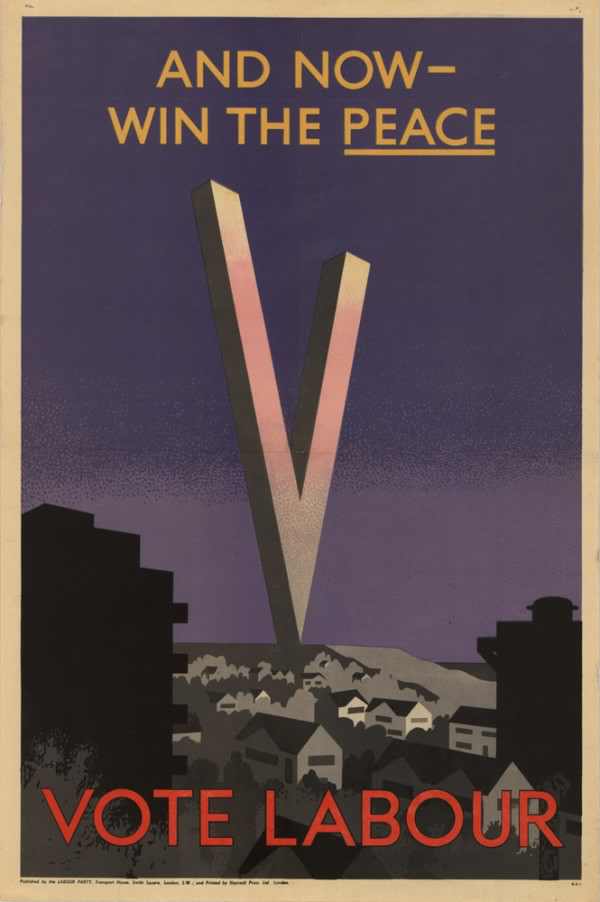
Still referred to as Labour's finest hour, the 1945 election saw Clement Atlee snatch power from war hero Winston Churchill and the Conservatives. Their campaign poster focused on rebuilding peacetime Britain following years of hardship during World War II and captured the desire for a change in the country's leadership.
Labour isn't working (1979)
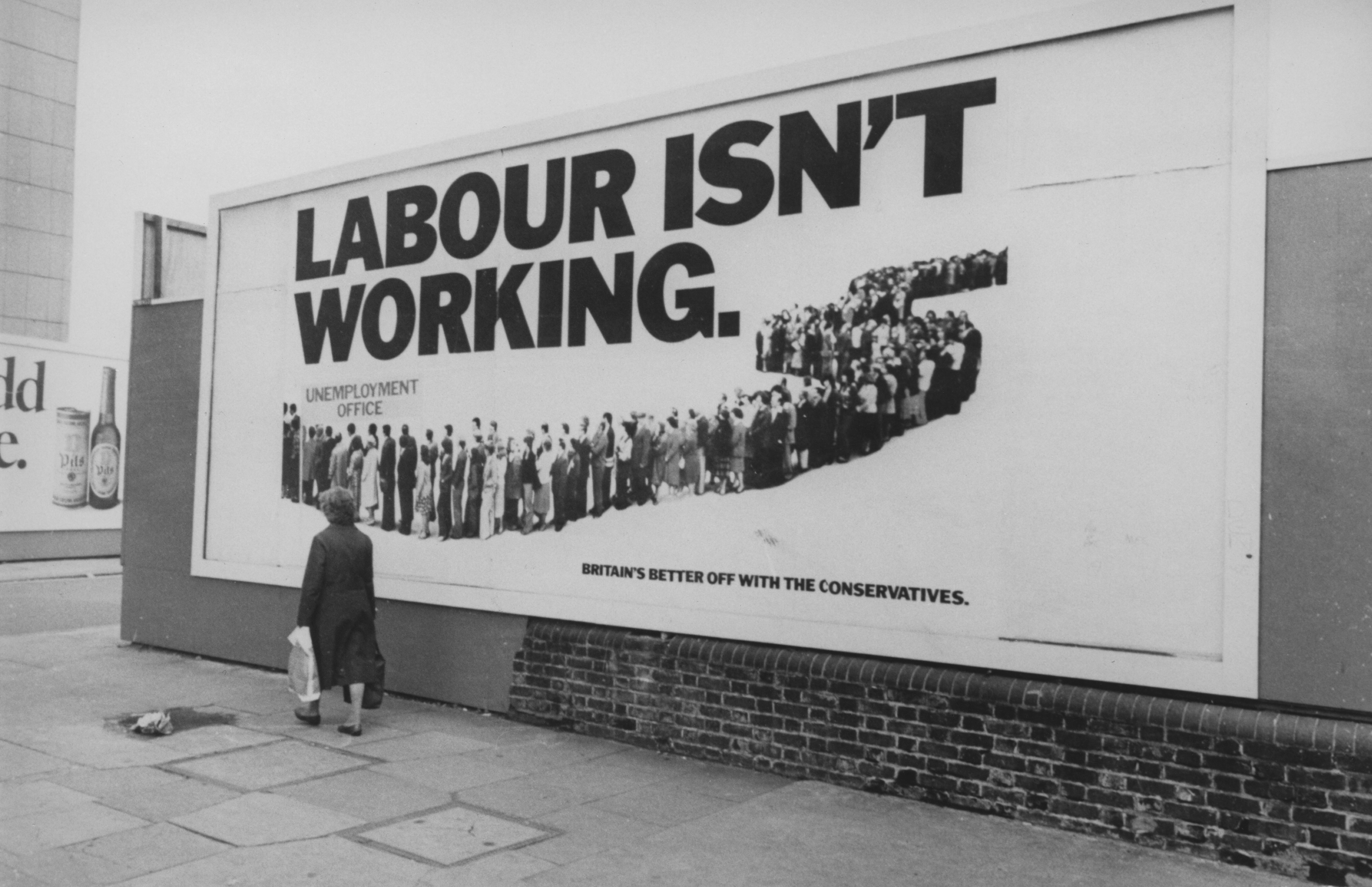
Margaret Thatcher famously rejected this poster, reports The Guardian, telling its designer, Saatchi & Saatchi's Tim Bell: "You know perfectly well that you should never have the other side's name in your own poster."
Bell fought his corner and the Tory leader eventually relented, resulting in the poster being used throughout her successful 1979 election campaign.
It was the first partnership in a long and largely fruitful marriage between the design company and the Conservatives, "helping the party win the next four elections and the agency grow into a global behemoth", says the Guardian.
Get out and vote. Or they get in (2001)
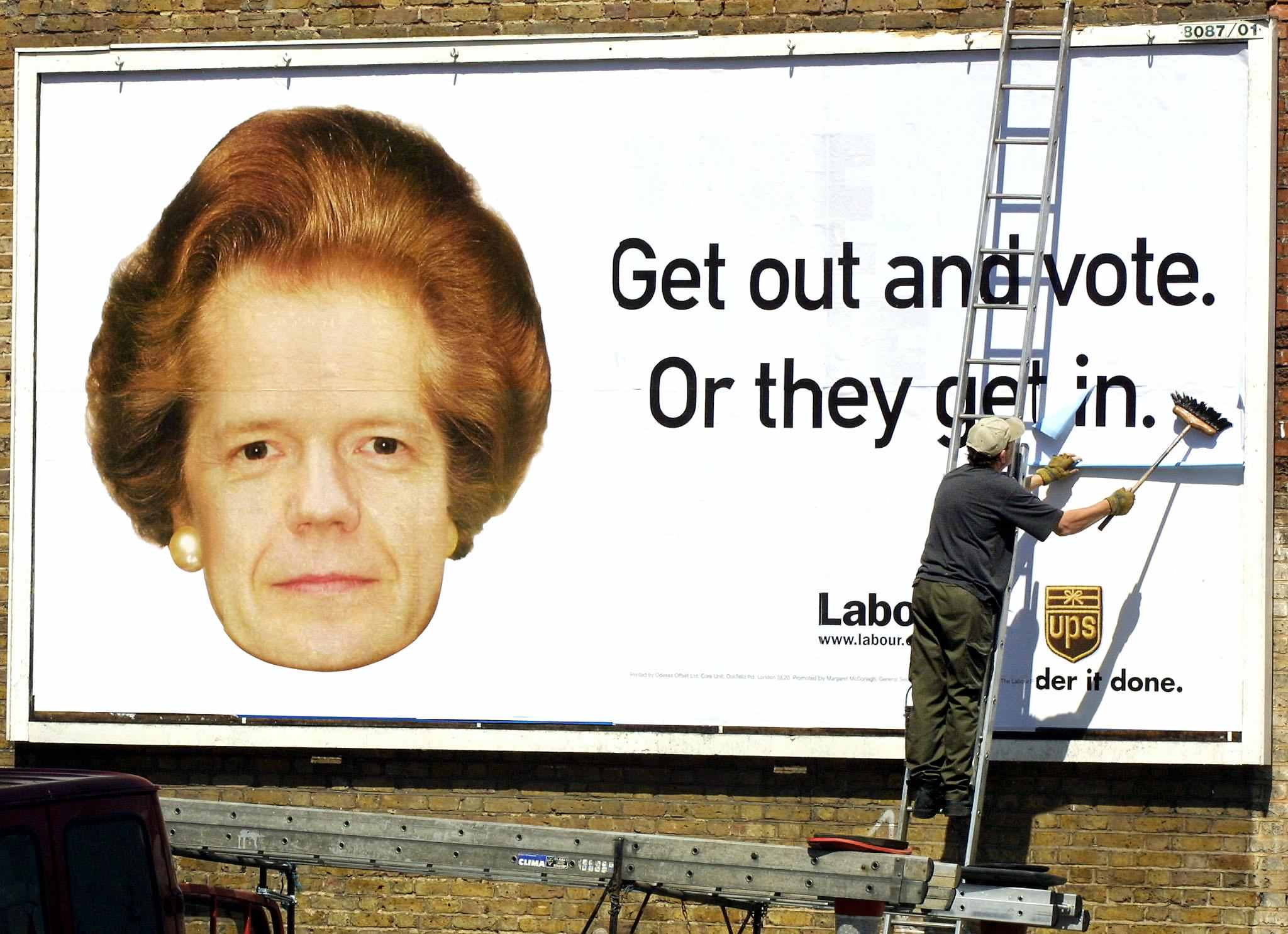
Perhaps the first victim of the Photoshop generation, Conservative leader William Hague was placed front and centre of Labour's campaigning in 2001. Harking back to the days of Thatcher, the ad saw Hague sporting an impressive bouffant and alongside a very simple message.
Year for change (2010)
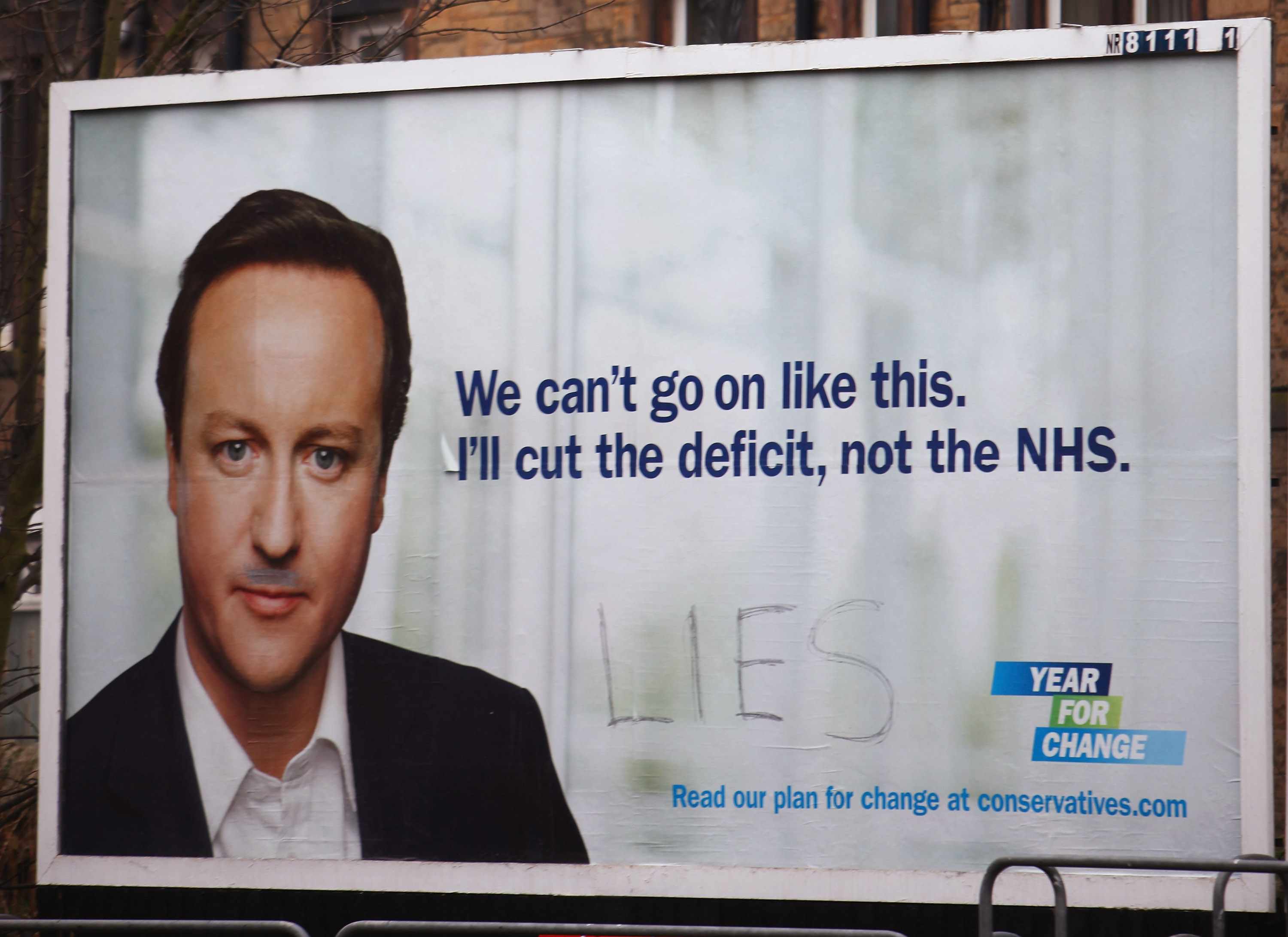
Perhaps better known for the subsequent Photoshop edits rather than its initial message, this 2010 poster initially saw the Conservatives pilloried in the press for having "retouched" an image of David Cameron.
But the internet quickly seized upon a different method of subverting the Conservative message, by simply replacing the words on the poster.
The new images were one of the first political memes, with the production of spoofs accelerated by a website allowing anyone to make their own version of the posters.
Vote Conservative (2015)
The most iconic poster of the 2015 campaign epitomised the Tories' main line of attack against a Ed Miliband's Labour.
"What makes the poster so impressive is that they have managed to bring to life the possibility that a vote for Labour could help usher the SNP into Downing St without even using a headline," writes Political Advertising.
"In one foul swoop it damned Miliband's leadership credentials, excited the SNP activist base in Scotland and distracted Labour from their NHS-led campaign and forced them onto the back foot."
-
 The environmental cost of GLP-1s
The environmental cost of GLP-1sThe explainer Producing the drugs is a dirty process
-
 Greenland’s capital becomes ground zero for the country’s diplomatic straits
Greenland’s capital becomes ground zero for the country’s diplomatic straitsIN THE SPOTLIGHT A flurry of new consular activity in Nuuk shows how important Greenland has become to Europeans’ anxiety about American imperialism
-
 ‘This is something that happens all too often’
‘This is something that happens all too often’Instant Opinion Opinion, comment and editorials of the day
-
 How corrupt is the UK?
How corrupt is the UK?The Explainer Decline in standards ‘risks becoming a defining feature of our political culture’ as Britain falls to lowest ever score on global index
-
 The Mandelson files: Labour Svengali’s parting gift to Starmer
The Mandelson files: Labour Svengali’s parting gift to StarmerThe Explainer Texts and emails about Mandelson’s appointment as US ambassador could fuel biggest political scandal ‘for a generation’
-
 Reforming the House of Lords
Reforming the House of LordsThe Explainer Keir Starmer’s government regards reform of the House of Lords as ‘long overdue and essential’
-
 How long can Keir Starmer last as Labour leader?
How long can Keir Starmer last as Labour leader?Today's Big Question Pathway to a coup ‘still unclear’ even as potential challengers begin manoeuvring into position
-
 Three consequences from the Jenrick defection
Three consequences from the Jenrick defectionThe Explainer Both Kemi Badenoch and Nigel Farage may claim victory, but Jenrick’s move has ‘all-but ended the chances of any deal to unite the British right’
-
 The high street: Britain’s next political battleground?
The high street: Britain’s next political battleground?In the Spotlight Mass closure of shops and influx of organised crime are fuelling voter anger, and offer an opening for Reform UK
-
 The MAGA civil war takes center stage at the Turning Point USA conference
The MAGA civil war takes center stage at the Turning Point USA conferenceIN THE SPOTLIGHT ‘Americafest 2025’ was a who’s who of right-wing heavyweights eager to settle scores and lay claim to the future of MAGA
-
 Is a Reform-Tory pact becoming more likely?
Is a Reform-Tory pact becoming more likely?Today’s Big Question Nigel Farage’s party is ahead in the polls but still falls well short of a Commons majority, while Conservatives are still losing MPs to Reform